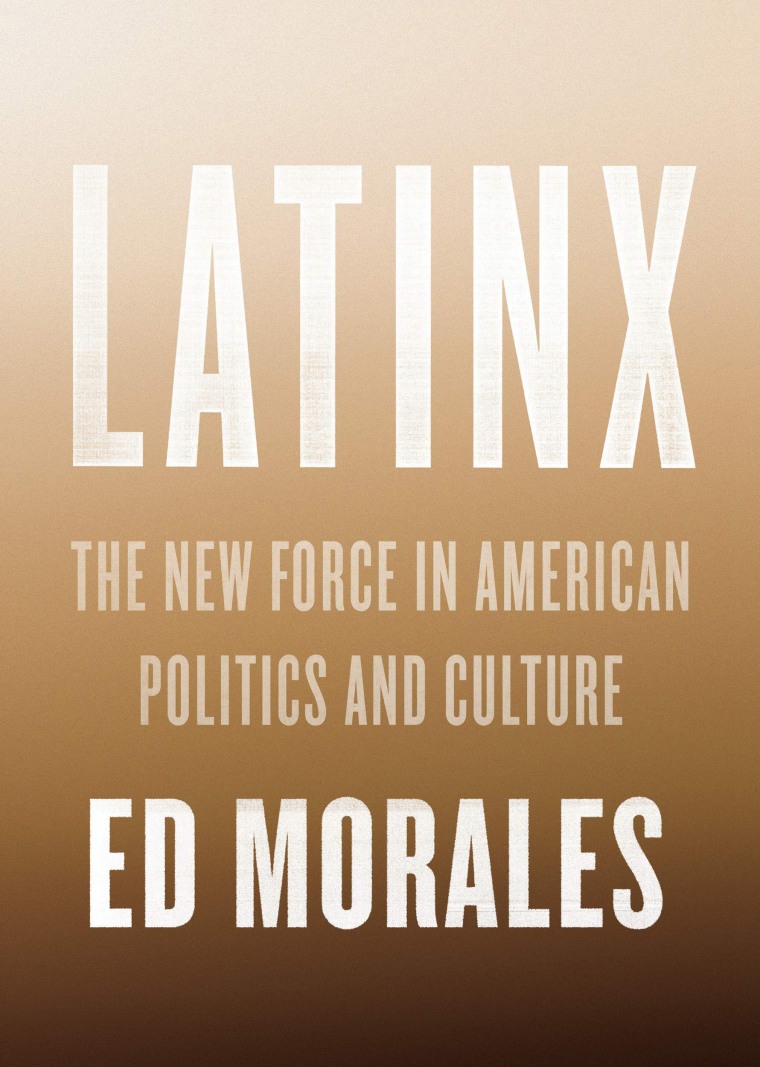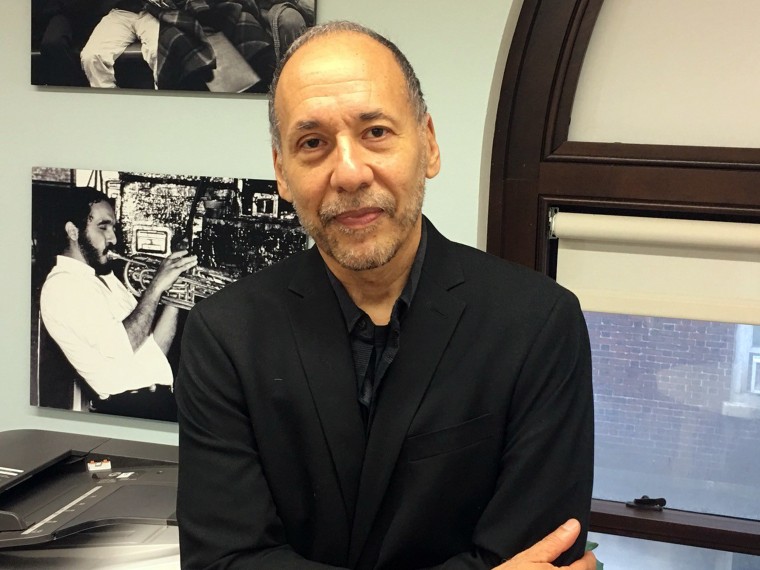It's a word that some Latinos embrace and others dislike. It's been hailed as inclusive, and derided as political correctness run amuck. Regardless, the term Latinx is here to stay, and according to journalist and author Ed Morales, it's reflective of the mixed-race and multicultural history of Latinos — and our country's future.
“It’s a new badge of honor for people, especially young people, to identify across different marginalized communities and draw strength from that,” said Morales, the author of a new book, “Latinx: The New Force in American Politics and Culture.”
“Latinx” is a gender-neutral term for people of Latin American heritage. It encompasses those who identify outside of the gender binary, such as transgender people, and those who are gender-fluid.
The concept of “Latinx,” Morales thinks, fits well with the ways that a new generation of Latinos inhabit multiple identities. He points to Parkland survivor Emma Gonzalez, who identifies as Cuban-American, bisexual, and a gun reform activist, as well as congressional candidate Alexandria Ocasio-Cortez, who proudly declares herself Latina, Nuyorican, and a Democratic Socialist.
Morales first heard the term Latinx while teaching.
“Often in my classes, I ask students about the state of Latino identification on campus,” he said. “I started to see an increase in Latinos talking about gender, sexual preference, and LGBTQ politics, and Latinx started to be part of the discussion.”
In September, Merriam-Webster added “Latinx” to its dictionary. Explaining the factors that led to the word’s inclusion, Emily Brewster, associate editor at Merriam-Webster, said via email that the company had seen significant evidence of the word's use in national and regional publications with a wide audience. “Its frequency of use was increasing, and it was clear that the word was going to be sticking around.”
According to Katherine Martin of the Oxford University Press, the Oxford English Dictionary had not yet published an entry for “Latinx,” although the editorial team is researching it for inclusion in a future update. “Oxford Dictionaries, OUP’s free online dictionary of current English, added an entry for “Latinx” in 2016,” she wrote in an email, “and ‘Latinx’ was included in Oxford’s Word of the Year shortlist that year.”
How do Latinos identify? It's complicated
In his book, Morales examines how Latinx people figure into America’s conversations about race and ethnicity, while exploring the contradictions surrounding Latino American identity.
How Hispanics see themselves is generally complicated because it has been shaped not only by the U.S. but by traditional conflicts about race and identity in Latin America — which in turn have been shaped by conflicts about race and identity in Spain and Europe.

The fact that much of his work is about the fluid identities of Latinos is one reason why Morales chose “Latinx” as the title for his book.
The author points out how expressions which are used affectionately in Latin America and among Latino immigrants, like “mi negro,” “chinito,” or “moreno,” can seem inappropriately racialized or insensitive in the U.S.
He notes that U.S. Latinos are often seen, collectively, as either a threat or a promise — with some politicians focusing on the former and marketers focusing on the latter.
These views omit the deep, multi-generational history of Hispanics, who have always been present since the country's beginnings, and whose trajectories are varied, like other groups of Americans.
Whle Morales embraces Latinx's political implications, he is aware of the controversy surrounding the word.
“Some people don’t really want to be involved in that debate, or it bothers them or it scares them,” he said. “Often that is disguised with an argument talking about how (Latinx) doesn’t exist in Spanish, that it is not a word that would be found in Spanish, and therefore it is an Anglo or U.S. invasion of Latino culture.”
“Latinx” likely first came into usage among Latino LGBTQ communities, then on U.S. colleges campuses around 2014. The term has slowly been appearing in mainstream outlets like the New York Times and The Washington Post. A Google trends search shows that there was a spike in people searching for the term Latinx around June 2016, when the mass shooting at Pulse nightclub in Orlando, Florida occurred.
Despite controversy, use of Latinx increases
Although many Hispanics express ambivalence with pan-ethnic labels, the debate and mainstreaming of “Latinx” continues.
Cristina Beltrán, associate professor in the Department of Social and Cultural Analysis at New York University, well understands the differing views on “Latinx.” Latino Millennials and college students like the word because it stands in solidarity with queer and transgender people, she explained, while opponents of the word push back on its use because they feel that Latino communities do not need another label.
“Latinx definitely carries a political connotation, just as the word ‘feminist’ likewise signals a kind of political awareness. Using Latinx is a signal that you’re a progressive ally,” she said. “On the other hand, it is not a very Spanish term, which for some people is a bummer. It refuses to obey the gender rules of Spanish.”
To Beltrán, the debate over “Latinx” feels “very generational right now,” and she is interested in where it is headed.
“Among our communities, terms like “Chicano” or “Raza” rise and fall, but never go away. So the future of “Latinx” depends on whether there will be more buy-in on its usage,” said Beltrán. She believes Morales’ book will be an important addition to scholarship on Latino identity because it covers such a range of topics, from history to politics to media.
As more media outlets introduce “Latinx,” one Philadelphia-based media company is trying an experiment. With a campaign called Cuéntame (Tell Me), the bilingual publication Al Día News is inviting readers to share their stories about identity.
“We are basically asking readers which terminology they prefer, so we can have a more accurate approach,” said Yamily Habib, a content creator and political writer for Al Día News. “We want to engage more with readers, let them show us how they identify; we have used “Latinx” already, but we want feedback from our community.”
Morales, the author of The Latin Beat and Living In Spanglish who has published in The Nation, the New York Times and Rolling Stone, takes a long view on the use of “Latinx.” He notes that the debate over the word started well before the candidacy and eventual presidency of Donald Trump. But perhaps as a response to the curent national climate, more Latinos are engaging in debates on identity.
“Latinx is a fascinating identity because it is futurist,” he said. “It points to the future of how society could evolve, with lots of different groups coming together and being in common cause.”
Raul A. Reyes is an NBC Latino contributor. Follow him on Twitter at @RaulAReyes, and on Instagram at @raulareyes1.
FOLLOW NBC LATINO ON FACEBOOK, TWITTER AND INSTAGRAM

